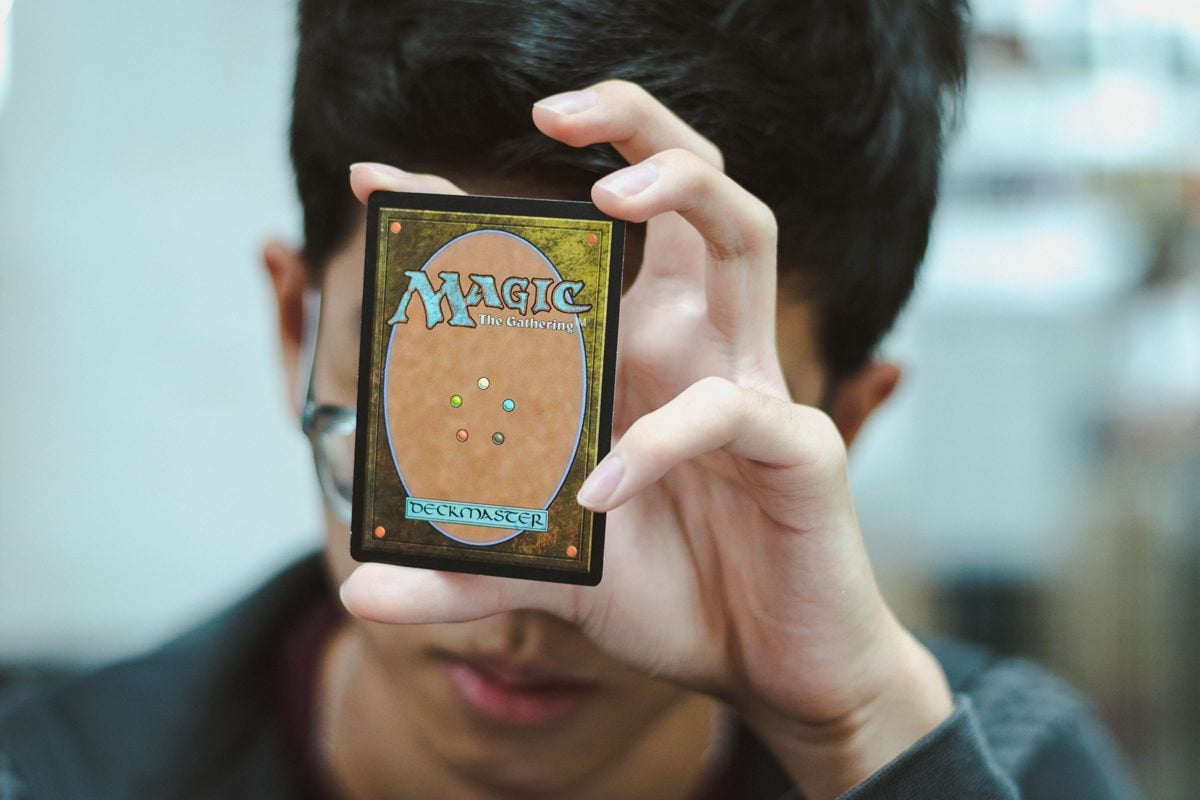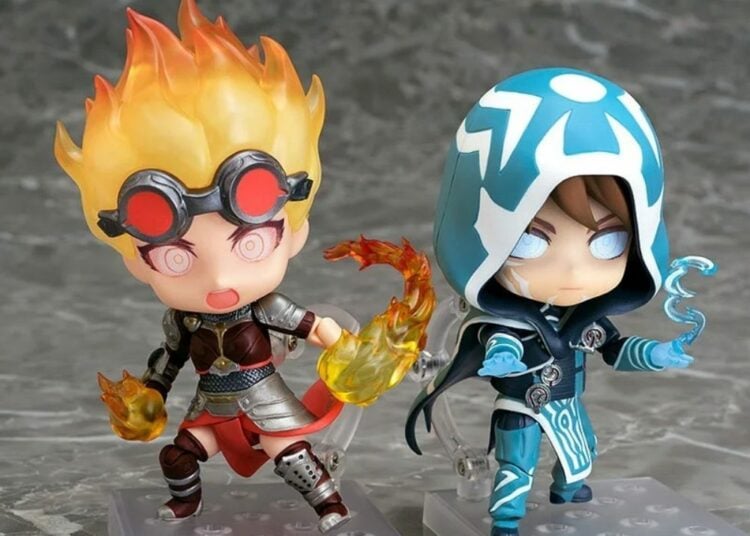The guy sitting across the table from me is giving me a solid thrashing. He’s playing cards I only half understand and I’m struggling to counter. It doesn’t help that I barely understand my own cards, either. The game is Magic the Gathering, and a friend and I are playing at a release game in a store not too far from J-List HQ. We’ve done our homework, and have some idea what cards we’ll see, but I feel ill prepared. My kanji is barely N5 level, and now I’m trying to decipher new cards under pressure. Mission control, we have a problem.

This isn’t our first sortie. We’ve played a few games at my local card store — just a little way off from D’Z Racing Cafe Garage — and I’ve learned loads.
A Gaming Cultural Exchange
Going out to buy cards or play at my local card shop has been a great way to interact with my students, who are usually boys overshadowed in a predominantly girl’s school, or boys from the technical school. Here, it doesn’t matter where you’re from. Even the 6-foot-plus South African is welcome — even if he’s not playing Vanguard. Here — between shelves of cards and deck protectors — cultural exchange is happening.
Your Cards, Now in English Too
You might be surprised at how easy it is to find English cards here in Japan, especially for Magic the Gathering. Magic is the granddaddy of collectable card games (CCGs) and spawned the genre that now includes Pokémon and Cardfight!! Vanguard, besides loads of others. Japan, and Japanese boys, in particular, are crazy about CCGs, which have even gone digital with games like Hearthstone and Magic: The Gathering Arena becoming hugely popular. That popularity means I can find English starter sets, boosters, and rares in English, even in this little town in this little-known prefecture.
One night we play draft, and one of the Japanese players is translating cards for his friends and for us gaijin players. Many collectors here know they’re more likely to sell cards in English, and, if they master the language sufficiently, they open up a world of possibility in the hobby. Magic is made in America, but it transcends cultural barriers, so a bilingual player can reap the knowledge on both sides of the sea.
I’m most impressed with how Japanese players play. Compared to Western players I’ve played with — including this boy from south of the Equator — Japanese players are far less sloppy. Each phase of their game is clearly indicated, as they play through their turn. This is great for new players and “veteran” gaijin swimming in a confusing sea of kanji alike. I find myself playing a smarter game as I try to follow their example.
Japanese players also put more into the game. The Japanese, as a people, are far more invested in any undertaking they put their minds to. They keep the same jobs, often for life. School students don’t move from club to club as Westerners might do. They stick around. It’s a gross generalization, but one rooted in a Confucian culture that even influenced our ideas of the Asian martial arts expert or tea ceremony master.
Get Out, Even For a Butt Kicking
Back to the release game, and the night’s tough. I’d count myself lucky to chalk up a win, but at least I’m experiencing something of real life in Japan. I’m still a foreigner, but I’m also a gamer, and here we’re all gamers. We come to the table as equals to play this game we all love. Any expat living in Japan will tell you these moments are rare. Your “foreignness” is always there, and sometimes it gets in the way of real interactions. It’s also all too easy to hang out with other foreigners and experience Japan superficially, as a tourist who never goes deeper. And going deeper is about meeting locals where they are, even if it’s just over a game of Magic the Gathering.









